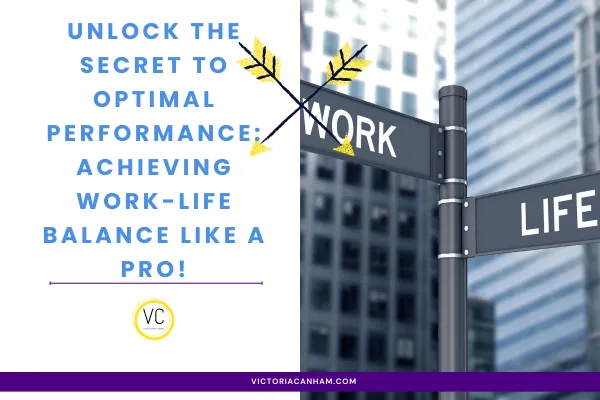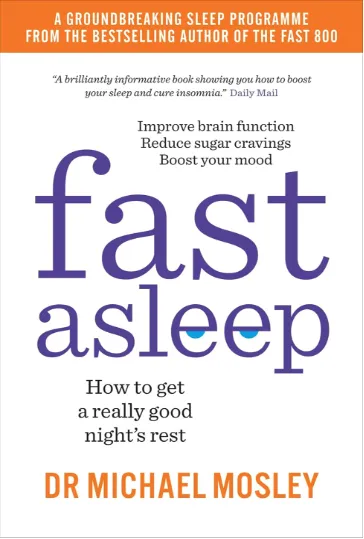Unlock the Secret to Optimal Performance: Achieving Work-Life Balance Like a Pro!
Victoria Canham • 10 October 2024 • 11 min read

Introduction: Unlocking Potential Beyond Success
Finding the perfect balance between work and personal life can often feel like an elusive goal. Juggling multiple responsibilities and striving for success in both domains can leave us feeling overwhelmed and stressed. But what if I told you that achieving work-life balance like a pro is not only possible, but also crucial for optimal performance?
In this article, we will unlock the secret to achieving work-life balance and explore how it can enhance your overall performance in both your professional and personal life. We'll delve into practical strategies and actionable tips that will empower you to prioritise your well-being while still accomplishing your professional goals.
Whether you're a seasoned professional or just starting your career, learning how to effectively manage your time, set boundaries, and prioritise self-care is essential for long-term success and happiness. By implementing the proven techniques and adopting a proactive mindset, you can achieve work-life balance like a pro and experience the benefits in all areas of your life.
It's time to take control of your life and unlock the secret to optimal performance. Get ready to transform your work-life balance and thrive like never before.
The importance of work-life balance
Achieving a harmonious work-life balance is essential for both personal well-being and professional effectiveness. When individuals manage to balance their work commitments with personal interests, family responsibilities, and self-care, they experience improved mental health and reduced stress levels. This equilibrium not only fosters happiness but also enhances overall productivity, leading to higher job satisfaction and better performance at work. Research shows that employees who maintain a healthy balance are less prone to burnout, which can significantly impact both their professional trajectory and personal life.
Moreover, work-life balance is vital for fostering creativity and innovation. When individuals have the time to explore hobbies, engage in social activities, or simply unwind, they recharge their mental batteries. This rejuvenation can spark new ideas and perspectives that positively influence their work. Organisations that promote work-life balance often reap the benefits through increased employee engagement, lower turnover rates, and a more vibrant workplace culture. Thus, achieving this balance is not merely a personal goal; it also aligns with the interests of employers aiming for a productive and content workforce.
Finally, the significance of work-life balance extends beyond individual well-being. It contributes to healthier relationships and stronger communities. When people are not overwhelmed by work demands, they can invest more time in family, friendships, and community involvement. This engagement leads to stronger social networks and a greater sense of belonging, which are crucial for emotional and psychological health. Ultimately, work-life balance nurtures not only the individual but also the fabric of society, creating an environment where everyone can thrive.
Understanding the challenges of achieving work-life balance
Despite the many benefits of work-life balance, achieving it can be a formidable challenge. One major obstacle is the modern work culture that often glorifies long hours and constant availability. Many individuals feel pressure to respond to emails outside of office hours or to take on additional projects to demonstrate commitment. This work-centric mindset can lead to neglecting personal priorities, leaving little room for family, hobbies, or relaxation. As a result, a cycle of stress and dissatisfaction can ensue, making it increasingly difficult to find that elusive balance.
Another challenge arises from the advancements in technology, which have blurred the boundaries between work and home life. While tools like smartphones and laptops enable flexibility and remote work opportunities, they can also create an "always-on" mentality. Many find it hard to disconnect from work when their devices are constantly pinging with notifications. This connectivity can lead to longer work hours and constant distractions, making it difficult to engage fully in personal activities. As a consequence, individuals may experience guilt for not being productive, further complicating their quest for balance.
Additionally, personal responsibilities such as childcare, elder care, or managing a household can add layers of complexity to achieving work-life balance. These obligations often demand significant time and energy, leaving little left for self-care or relaxation. Individuals may find themselves juggling multiple roles, leading to feelings of inadequacy or frustration. Recognising and addressing these challenges is the first step toward creating a sustainable work-life balance that honours both professional aspirations and personal well-being.
Signs of an imbalanced work-life situation
Identifying an imbalanced work-life situation is crucial for making necessary adjustments. One of the primary indicators is chronic stress or anxiety. When work starts to overshadow personal life, feelings of overwhelm can manifest in various ways, such as irritability, fatigue, and difficulty concentrating. If you find yourself constantly feeling pressured or anxious about work tasks, it may be time to reassess your priorities and commitments. Acknowledging these feelings is the first step toward seeking a healthier balance.
Another sign of imbalance is neglecting personal relationships and interests. When work consumes most of your time, you might notice a decline in social interactions or a lack of engagement in hobbies that once brought joy. If weekends are spent completing work tasks instead of enjoying time with family or pursuing passions, it is a clear signal that work is taking precedence over personal life. Relationships with loved ones can suffer due to this neglect, leading to feelings of isolation and discontent.
Physical symptoms can also indicate an imbalance in life. If you consistently experience headaches, insomnia, or frequent illnesses, these may be manifestations of stress and overwork. Ignoring physical health can have long-term repercussions, impacting not only your professional life but also your personal happiness. Recognising these symptoms and understanding their root cause is essential in taking proactive steps toward restoring balance and improving overall well-being.
Strategies for achieving work-life balance
Achieving work-life balance requires intentional strategies that promote harmony between personal and professional lives. One effective approach is setting clear goals and priorities. Identify what truly matters to you in both realms, and allocate time accordingly. This may involve creating a list of professional objectives alongside personal interests. By articulating these priorities, you can allocate your time and energy more effectively, ensuring that neither work nor personal life is neglected.
Another critical strategy involves developing a structured routine that includes dedicated time for work, family, and self-care. Creating a consistent schedule allows you to establish boundaries and minimises the risk of work encroaching upon personal time. For instance, setting specific work hours and blocking out time for exercise, hobbies, or family activities can create a more balanced daily rhythm. Routines foster a sense of stability, enabling individuals to engage fully in each aspect of their lives.
Furthermore, flexibility is a key component of achieving balance. Life is unpredictable, and being adaptable can help you navigate unexpected challenges without feeling overwhelmed. Embrace the idea that it is okay to adjust your plans when necessary. For instance, if a work deadline arises, consider rescheduling personal commitments rather than abandoning them altogether. This flexibility allows you to maintain a sense of control over your life, making it easier to find balance when faced with competing demands.
Time management techniques for balancing work and personal life
Effective time management is crucial for finding the right balance between work and personal life. One foundational technique is the Pomodoro Technique, which encourages focused work sessions followed by short breaks. By working intensely for a set period, typically 25 minutes, and then taking a 5-minute break, you can enhance concentration and productivity while preventing burnout. This method not only allows you to accomplish tasks more efficiently but also creates designated times for personal reflection or relaxation.
Another valuable technique is prioritising tasks using the Eisenhower Matrix, which categorises tasks based on their urgency and importance. By identifying what needs immediate attention versus what can wait, you can allocate your time more effectively. This approach empowers you to focus on high-priority tasks, reducing the likelihood of feeling overwhelmed by less critical responsibilities. Consequently, you can create space for personal activities without compromising your work commitments.
Additionally, batching similar tasks can streamline your workflow. By grouping related activities, such as responding to emails or conducting meetings, you can minimise distractions and maximise efficiency. This technique helps create blocks of uninterrupted time, enabling you to focus deeply on work without constantly switching gears. As a result, you can complete work tasks more swiftly, freeing up time for personal pursuits and fostering a greater sense of balance in your life.
Setting boundaries and prioritising self-care
Establishing boundaries is a powerful way to protect your personal time and ensure a healthier work-life balance. Communicate your work hours clearly to colleagues and supervisors, and strive to stick to them as much as possible. Setting these boundaries not only helps you manage your time effectively, but it also sends a message to others that your personal life is equally important. Remember, it’s acceptable to say no to additional projects or after-hours meetings that infringe upon your time away from work.
In addition to professional boundaries, prioritising self-care is essential for maintaining a balanced lifestyle. Self-care encompasses a range of activities that nurture your physical, emotional, and mental well-being. This can include regular exercise, mindfulness practices, hobbies, or spending quality time with loved ones. Incorporating self-care into your daily routine can significantly enhance your resilience against stress and improve overall satisfaction in both your personal and professional life.
Moreover, consider scheduling "me time" in your calendar, just as you would for important work meetings. Whether it’s a weekly yoga class, a favourite book, or a nature walk, treating self-care as a non-negotiable appointment reinforces its importance. By prioritising your well-being, you empower yourself to show up more fully in all areas of your life, allowing for a more fulfilling existence that honours both professional ambitions and personal joys.
The role of communication in achieving work-life balance
Effective communication plays a pivotal role in fostering work-life balance. Open dialogue with supervisors about your workload and personal commitments is essential for setting realistic expectations. If you find that work demands are encroaching on your personal time, don’t hesitate to address this with your manager. A constructive conversation may lead to adjustments that allow for greater flexibility, ensuring that both personal and professional needs are met.
Furthermore, maintaining clear communication with family and friends is equally important. Share your work commitments and schedule with them so they understand when you may be unavailable. This transparency can help manage their expectations and foster support for your efforts to achieve balance. Being open about your needs allows loved ones to encourage you in pursuing personal interests and self-care without feelings of guilt or obligation.
Additionally, consider providing feedback to your organisation regarding work culture and policies that impact your ability to maintain balance. Engaging in discussions about flexible work arrangements, mental health resources, or team well-being initiatives can contribute to a healthier workplace for everyone. By advocating for a culture that values work-life balance, you not only improve your situation but also help create an environment where others can thrive.
Tips for maintaining work-life balance in a remote work environment
Remote work offers flexibility but can also blur the lines between professional and personal life. One effective tip for maintaining balance in this environment is to create a dedicated workspace. Establishing a specific area in your home for work helps to mentally separate work tasks from personal activities. This physical boundary makes it easier to "leave" work at the end of the day, promoting a clearer distinction between work and leisure
.Another important strategy is to adhere to a consistent schedule. Just as you would in a traditional office setting, set designated work hours and stick to them. Communicate these hours to family members or housemates, so they understand when you are unavailable. Maintaining this routine helps reinforce boundaries and allows you to structure your day effectively, ensuring time for both work responsibilities and personal activities.
Finally, leverage technology to your advantage by utilising productivity and time management tools. Applications that track tasks, set reminders, or create to-do lists can help you stay organised and focused. Additionally, consider using communication tools to maintain regular check-ins with colleagues, fostering a sense of connection even in a remote setting. By utilising these resources, you can enhance your productivity while ensuring that personal time remains a priority.
Tools and resources for enhancing work-life balance
There are numerous tools and resources available to help individuals enhance their work-life balance. Time management apps like Trello or Asana allow users to organise tasks and projects visually, making it easier to prioritise and manage deadlines. These platforms facilitate collaboration among team members, providing transparency and accountability, which can alleviate work-related stress.
Mindfulness and wellness applications, such as Headspace or Calm, can support mental health by offering guided meditations and relaxation techniques. Incorporating mindfulness practices into your daily routine fosters a sense of calm and enhances focus, contributing to a healthier work-life balance. These resources can help you carve out moments for self-care amidst a busy schedule, ultimately improving your overall well-being.
Additionally, consider exploring community resources that promote work-life balance, such as local fitness classes, support groups, or workshops on time management and stress reduction. Engaging with these resources not only provides valuable skills but also creates opportunities for social connection. Building a support network can significantly enhance your ability to navigate challenges and maintain a fulfilling balance between work and personal life.
Conclusion: Embracing a balanced and fulfilling life
Embracing work-life balance is a journey that requires continuous effort and self-awareness. By understanding the importance of this balance and recognising the challenges that may arise, individuals can take proactive steps to create a fulfilling life. Implementing strategies such as time management techniques, setting boundaries, and prioritising self-care fosters a harmonious co-existence between professional aspirations and personal joys.
As you navigate the complexities of modern life, remember that balance is not a destination but an ongoing process. Regularly reassess your priorities, communicate openly with those around you, and be willing to adapt your approach as needed. This flexibility will allow you to respond to changing circumstances while ensuring that your well-being remains a top priority.
Ultimately, achieving work-life balance is about creating a life that resonates with your values and aspirations. By unlocking the secrets to this balance, you can enhance both your personal and professional performance, leading to a more fulfilled and enriched existence. Embrace the journey toward balance and watch as your life transforms into a vibrant tapestry of achievements, relationships, and self-care.
Book a complimentary discovery session, and let's get started on creating the high-performance life you've been craving.
Recommended Reading
Fast Asleep: How to get a really good night's rest by Dr Michael Mosley
A good night's sleep is essential for a healthy brain and body. So why do so many of us struggle to sleep well? In Fast Asleep, Dr Michael Mosley explains what happens when we sleep, what triggers common sleep problems and why standard advice rarely works.
Prone to insomnia, he has taken part in numerous sleep experiments and tested every remedy going. The result is a radical, four-week programme, based on the latest science, designed to help you re-establish a healthy sleep pattern in record time.
With plenty of surprising recommendations - including tips for teenagers, people working night shifts and those prone to jet lag - plus recipes which will boost your deep sleep by improving your gut microbiome, Fast Asleep provides the tools you need to sleep better, reduce stress and feel happier.
We’re not just about overcoming obstacles, we’re about transforming lives.

Victoria Canham - Your Performance Partner
Victoria is an ICF-accredited certified professional coach, who offers personalised performance coaching. With a background in change management and countless hours of professional coaching training and experience, I made the big switch to full-time coaching in 2020. I know what it is like to suddenly have the rug pulled out from under you while you're busy making other plans, as a result, I now help people like you to bounce back from adversity and major setbacks to emerge stronger and better than ever before. Our clients have transformed from feeling overwhelmed by life's challenges to confident, goal-driven individuals who navigate life's obstacles with ease. They've achieved their personal and professional objectives and embodied peak performance in all aspects of life. You too can experience this transformation. This is your moment. Your chance to take control, to choose growth over stagnation, achievement over inaction. This is your opportunity to prove to yourself that you're not defined by your challenges—you're defined by how you rise above them. Are you ready to transform your life and achieve peak performance?
Hang out with us on social media
FREE RESOURCES
© Copyright 2026 Victoria Canham Coaching | Website built by Me on FEA Create (aff.)
Performance Coaching Reading, London, Berkshire, Oxford | St George's Road, Reading, Berkshire, United Kingdom, RG30 2RL | +44 7377 527 529 | [email protected] Open Monday to Friday 9 am until 5 pm


